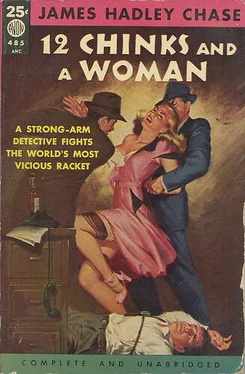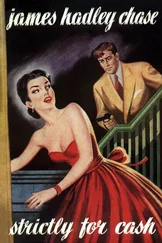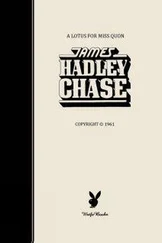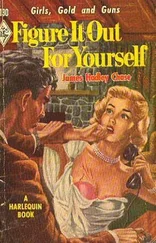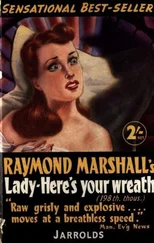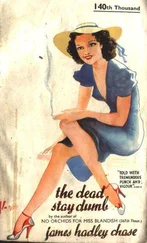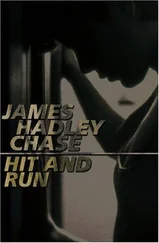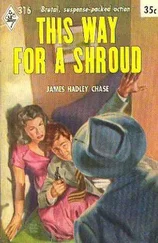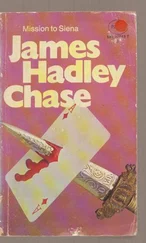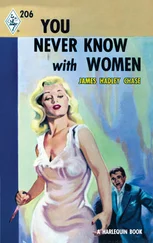Schaife said, “Make it three.”
Noolen shook his head. “Can’t do,” he said briefly. “Two’s ample.”
There was a moment’s silence, then the squint-eyed Alex said, “That’s okay with me.” The others hesitated, then agreed. Fenner blew out his cheeks. “So far so good,” he thought.
“We shall want a boat,” he said. “Any of you guys got a motor-boat?”
Kemerinski said he had.
Fenner nodded. “There’s a spot just north of Key Largo, called Black Caesar’s Rock. That’s where Carlos keeps his boats. That’s where Thayler makes the exchange and takes the Chinks for the rest of the ride. I guess we might go out an’ look that burg over.”
Scalfoni swung his short legs. “I got just the thing for those guys,” he said, with a cold grin. “How would you like to take a load of bombs with you?”
Fenner looked vaguely round the room. “Bombs?” he said. “Sure, bring bombs.” A fixed ice-cold look crept into his eyes. “Sure,” he repeated, “that’s quite an idea.”
Noolen said uneasily, “The cops’ll make a hell of a row about bombs.”
Fenner shook his head. “The cops won’t worry about Carlos. They’ll hang out bunting when that guy croaks.”
Scalfoni got up. “When do we go?” he said. There was a tight eagerness in his voice.
“We’ll go now. We’ll go just as soon as the boat’s ready an’ you boys have collected some artillery.”
Scalfoni hesitated, then shrugged. “I gotta date, but I guess she’ll have to wait. This sounds like it’s goin’ to be quite a party.”
Fenner said, “Where’s your boat?”—to Kemerinski.
“It’s in the harbor opposite the San Francisco Hotel.”
“Okay. Suppose you boys meet me in an hour’s time on the boat?”
They all said they’d do that, and Fenner went out with Noolen. He said gently, as they got into the street, “If I were you, I’d go along to the cops and get protection. If Carlos thinks you’re in this he might get tough with the Casino. You keep out of sight until it’s over. Tell the cops you want some officers over at your place; that you’re expecting trouble.”
Noolen looked uneasy, and said he’d do that, and went off into the darkness.
Keeping to the back streets, Fenner headed for the waterfront. He walked fast, his hat pulled well down over his face, and his eyes searching the black shadows as he went along. He had no intention of running into any of Carlos’s mob just at present. He knew Carlos must be looking for him. Fenner told himself the next twenty-four hours ought to be a lot more interesting than the last twenty-four hours.
As he approached the waterfront through Negro Beach he saw ahead of him a car drawn up under a lamp standard, with parkers on. He looked hard at the car and came on, slowing his pace and not quite knowing why he did so. Somehow, in the almost deserted dark street that car looked too isolated, too obviously loitering. He suddenly ducked into a doorway because he noticed the curtain of the rear window had shifted. There was no wind, and he had an uncomfortable feeling that someone had been watching him come down the street.
The sound of an engine starting came to Him in the silence, and gears grated, then the car began to move forward slowly. Fenner stood in the doorway until the red tail light disappeared round the bend in the road. He rubbed his chin thoughtfully, then stepped out on to the pavement again.
He didn’t go forward, but stood very still, listening. Faintly he could hear the whine of a car, and a cold little smile hit his mouth. The car had gone forward only to turn. It was coming back.
He ran across the road fast and stepped into another doorway in the dark shadows. Squeezing himself against the brickwork, he felt for his gun and jerked it from his shoulder holster. He thumbed back the safety catch and held the gun, with its blunt nose to the star-filled sky.
The car swung round the bend. It was gathering speed. Its only lights were its parkers, and as it swept past, a blaze of gun-fire spurted from the side window.
Fenner could hear the patter of bullets thudding against the wall on the opposite side of the road, where he had been. Someone was grinding a Thompson, and Fenner couldn’t help being thankful that he had crossed the road. He fired three times at the car as it went past him. He heard the crash of the glass as the windshield went, and the car lurched across the road and thudded up the curb, then smashed into a shop window.
Running from his doorway, Fenner went a little way up the street, passing the car, and ducked down a dark alley. He went down on one knee and peered round, watching.
Three men darted out of the car. One, he thought, was Reiger. They ran for cover. Fenner got the middle man in his gun-sight and squeezed the trigger. The man staggered, tried to keep his balance, then fell on his face in the road. By that time the other two had darted into doorways. They began firing at the mouth of the alley, one with an automatic and the other with a Thompson. Fenner didn’t bother about the man with the automatic, but the Thompson bothered him a lot. The bullets chipped away the brickwork of the wall, and he had to crawl away from the opening as splinters of concrete made things dangerous.
Remembering the night on the boat, Fenner crawled further away. He wasn’t risking having a bomb tossed at him.
Someone called, “You better duck in here.”
He saw a door on his left open and a figure standing in the doorway. “Shut that door and get under cover,” he shouted. “Look lively.”
It was a woman who spoke. She said unemotionally, “Shall I ring for the cops?”
Fenner slid over to her. “Beat it, sister,” he said. “This is a private row. You stay indoors; you’re likely to get hurt standing there.” Just as he finished speaking a blinding flash and a violent explosion came in the mouth of the alley. A sudden rush of wind flung Fenner forward and he and the woman went over with a crash into the narrow passage of the house.
Fenner rolled over and kicked the front door shut. He said, “Wow! These guys’ve got bombs.”
The woman said with a quaver in her voice, “This joint won’t stand another like that. It’ll fall down.”
Fenner got unsteadily to his feet. “Let me into a front room,” he said quickly. He moved in the darkness where he thought a room ought to be, and stumbled over the woman, who was still sitting on the floor. She wound her arms round his legs and held him.
“Forget it,” she said shortly. “You start firing from my window and they’ll throw another bomb at you.”
Fenner said, “Then let me out of here”—savagely.
Faintly the sound of a siren coming fast reached his ears.
The woman said, “The cops!” She let go of Fenner and got to her feet. “Got a match?”
Fenner made a light and she took the spluttering flame from his fingers. She went over to a naked gas burner and lit it with a plop. She was a short, fat middle-aged woman with a square chin and determined eyes.
Fenner said, “I guess you did me a good turn. If I’d been outside when that pineapple went off, I should have been sticking to the wall. Now, I guess I better beat it before the cops start having a look round.”
The siren came up with a scream and died away in a flurry as brakes made tires bite into the road. She said, “You better stay here. It’s too late to go out now.”
Fenner hesitated, checked his watch, found he had still some forty minutes before meeting the mob, and nodded. “Somehow,” he said, “you remind me of my best girl. She was always getting me out of a jam.”
The woman shook her head. A little gleam of humor showed in her eyes. “Yeah?” she said. “You remind me of my old man when he was around your age. He was quick and strong and tough. He was a good man.”
Читать дальше
